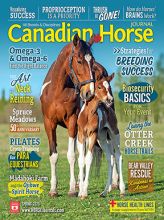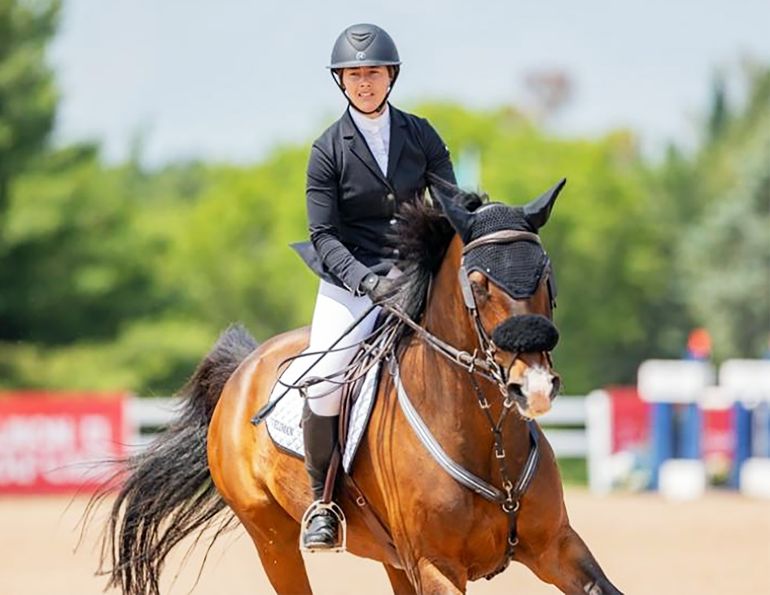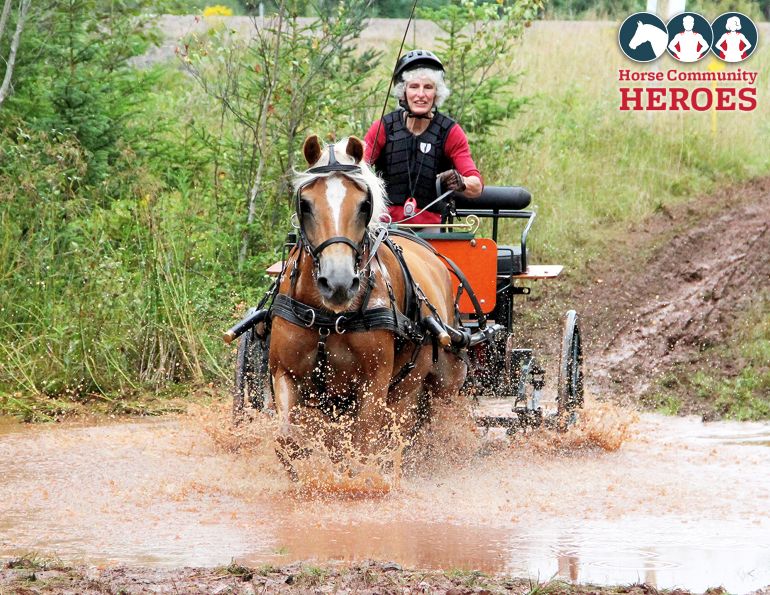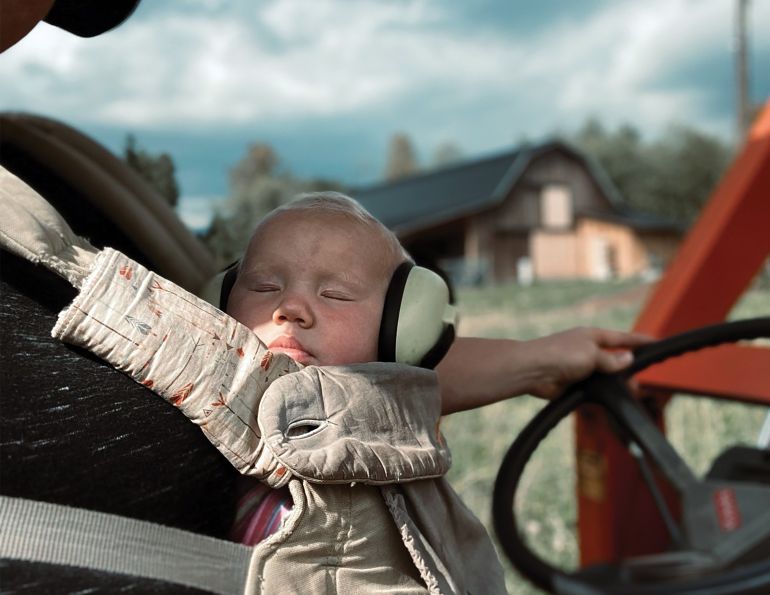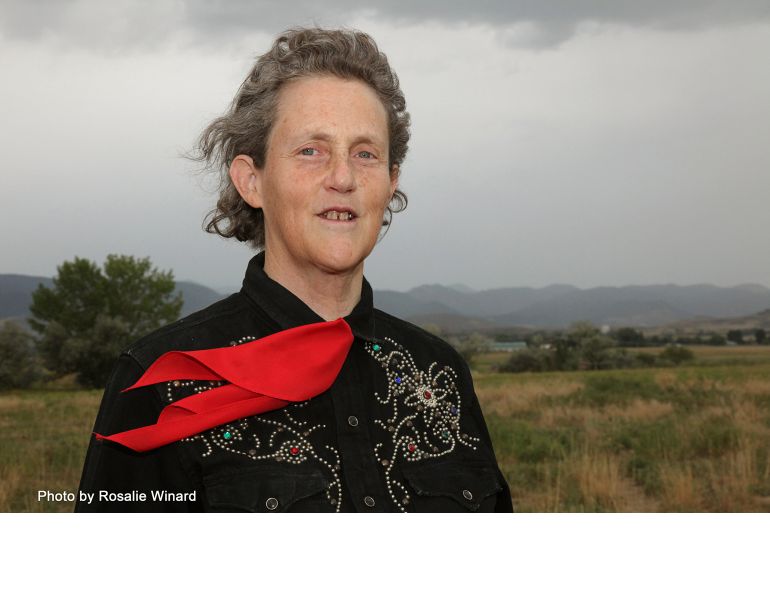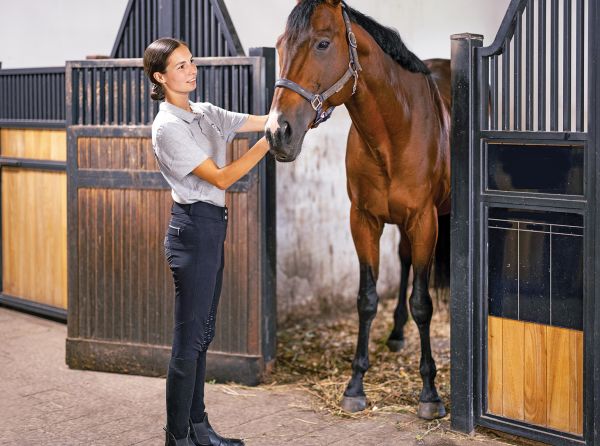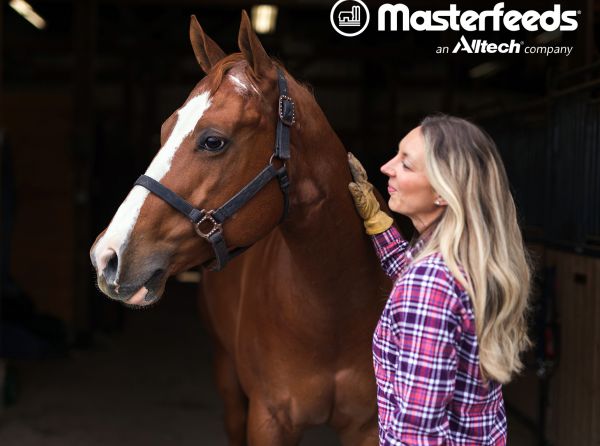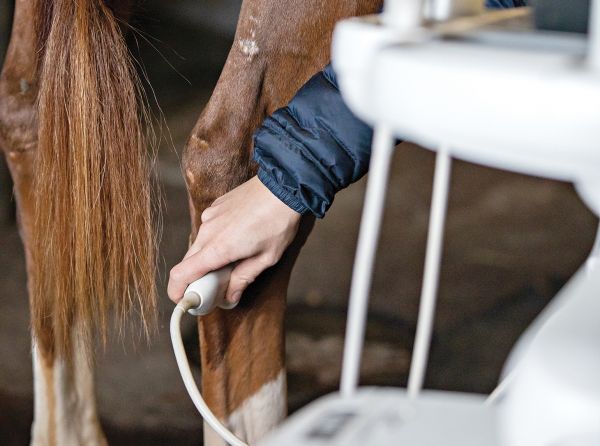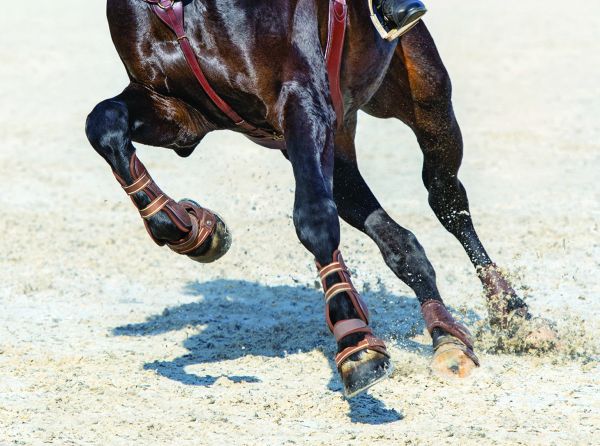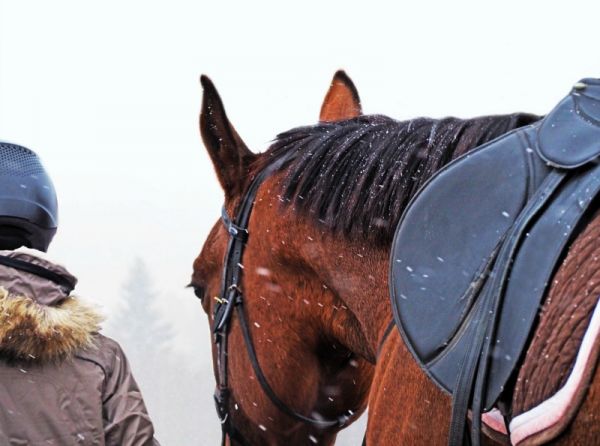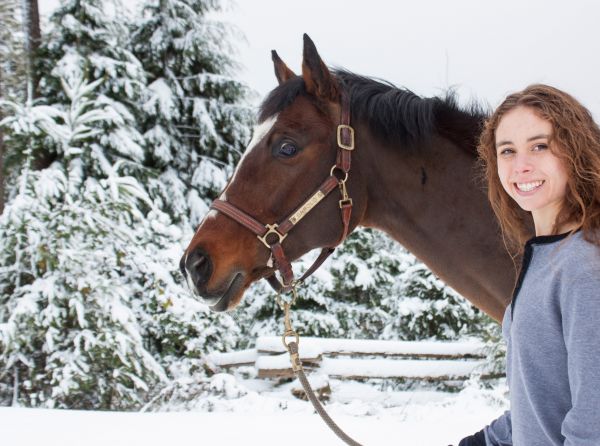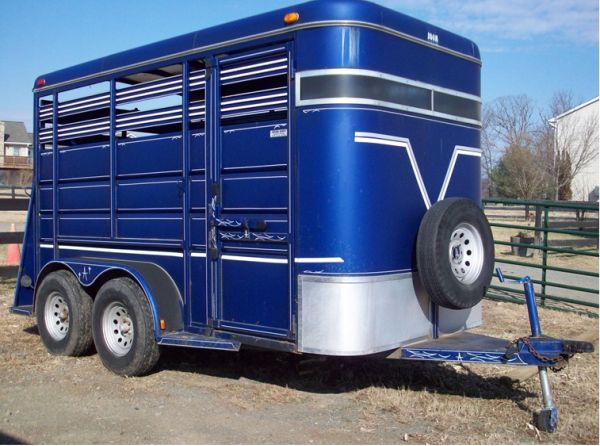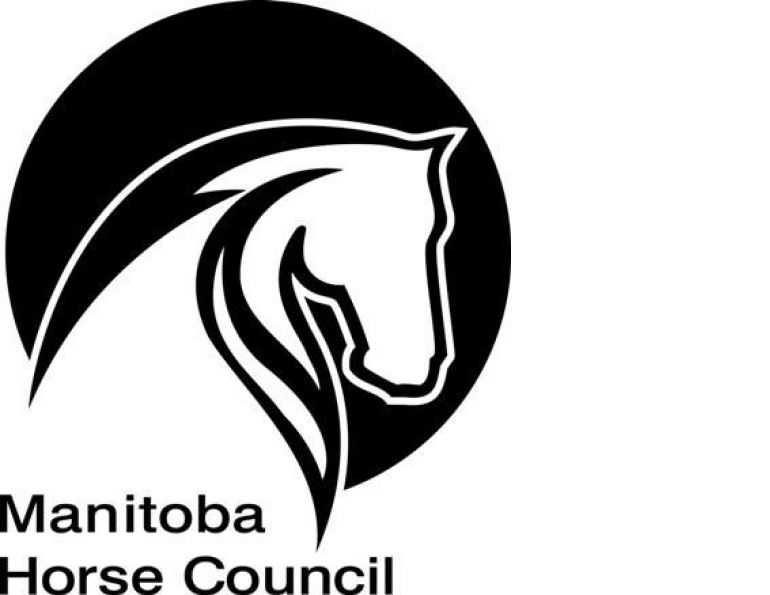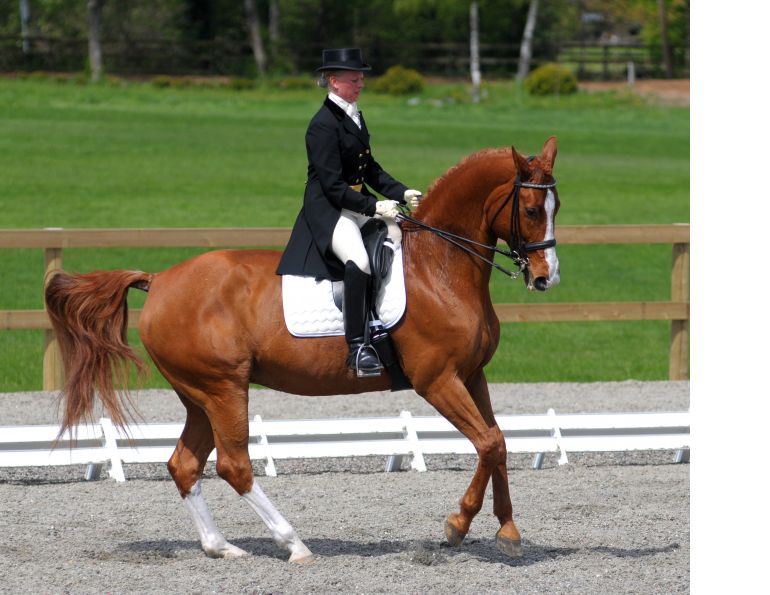By Margaret Evans
He stood there. Distant. Detached. From the centre of the ring, his blue eyes cruised the riders in the equitation hunter class as he called for them to change gait. Yesterday, I would have assessed the gaze of this horse show judge as critically observant of the skills and presentation of the riders. Now, I saw his gaze as predatory, calculating, cold. The night before, I had fallen victim to his sexual assault and I still felt the burning sting of his unwanted and uninvited demanding, invasive touch. And I felt the anger, the sense of misplaced shame, the confusion of colliding, intense emotions that sidelined my confidence. I hated him for the position he had put me in. But when he glanced in my direction there was no hint of recognition, his face a mask of anonymity. I simply didn’t exist.
I get #MeToo. I’ve been there. That encounter with the judge at a horse show happened in the early 1970s when I was in my twenties and building my writing career. I had come to Canada from England and was well aware of the culture of flirting among office colleagues. Mostly, it was pretty harmless fun and did not cross the line to inappropriate innuendo. And it was part of the social culture of the time.

A 2015 Ipsos/Reid poll reports that 82 percent of women victimized by sexual assault did not report the incident to police. Of those who did, 71 percent said the experience was more negative than positive. Photo: Shutterstock/Deam Drobot
But a line is crossed when that social culture becomes sexual harassment or assault, and when bullying and intimidation set a dangerous precedent. It is present in all industries and the horse industry is no exception.
A coach makes inappropriate demands with a comment about being a “team player” and a hint at earning a place on the team.
A trainer makes sexual demands with a vague promise that better opportunities will follow.
A rider feels uncomfortable at the barn because the barn manager often stands too close and tries to make physical contact.
Another rider struggles to control panic attacks in the face of the barn bully.
Many horse people agree that it is almost unbelievable what perpetrators have been able to get away with for so long.
This magazine’s editor/publisher, Kathy Smith, knows full well similar kinds of experiences in the horse industry. “Sadly, we’ve all experienced it in some shape or form. I experienced it in my very first office job, as well as many times in the horse industry,” she says. “Coaches and clinicians can be intimidating, belittling, or make fun of a rider’s weight or physical characteristics. In the days before sports bras, most big-busted girls I knew simply refused to ride for fear of being made a laughingstock, terrified of being asked to sit the trot. I’ve taken clinics years ago where, instead of being told to sit up straight with shoulders back, the girls were told to ‘stick your boobs out.’ When I was about 12 years old, I told my middle-aged neighbour I did NOT need help mounting my horse bareback, but he rushed over anyway and grabbed me by the crotch while I was mounting, saying he was ‘helping me get on’ and he left his hand under my crotch until I kicked the horse forward to get away from him. This particular neighbour’s farm and horse pasture were adjacent to my elementary school, and the implications of that are not lost on me…”
“I have worked in the the horse industry on and off for most of my life,” says April D. Ray, sales and social media manager at Horse Community Journals. “As a twenty-something woman, I remember one-night joking about the old hiring practices at my place of work. Apparently, the women had to put their hands behind their head and walk towards a wall, if their boobs touched the wall before their elbows did, they could work in a certain someone’s barn. I laughed about it at the time, feeling thankful that that test was not part of my job interview. But we still battled sexual harassment, gender biases, and less pay than the men who did the same job we did. I recall on multiple occasions our complaints in the barn being chalked up to being a ‘girly thing’ and therefore not worth discussing or resolving. Over the years, if I think about it, I can recall times I felt uncomfortable and even unsafe in the barn or at a horse show. Times I have been treated as less than, purely because of my gender. In an industry often dominated by women, it’s shocking that men have been able to rule the barns and show rings for so long. I, for one, look forward to seeing the #MeToo movement trickle down from Hollywood and into the horse industry.”
The sad thing is that sexual harassment and bullying have been so common and pervasive that they have gone almost unnoticed or have been shrugged off with indifference. When I was a child, I was always offering to clean stalls at the local riding stable in return for a riding lesson or a half-hour hack. A few guys worked there giving lessons, and one day one of the guys threw a girl from the hayloft into a pile of loose hay below, then jumped on top of her. I can still hear her angry screams as he groped her. It was the joke of the barn.
The assumption that it was acceptable to take advantage of women was everywhere and, disturbingly, many women accepted it. At a fish and game conference in Alberta decades ago, men kept buying me drinks and placing them in front of me despite my objections. But the women told me to just say thank you and drink up. “They want to get you drunk and…” they foretold with a shrug to which I replied that wasn’t going to happen. But the harassing behaviour left me vulnerable and alone as I scored a 10 on the unpopularity chart.
Sexual assault can have devastating and long-term effects, especially on young people in their teens. Cassie Dawson alleges that she was sexually assaulted by James Corbett, owner of Cedar Ridge Stables in North Pelham, Ontario, when she was 16 and Corbett was in his mid-50s.

Cassie Dawson with her horse. Photo courtesy of Cassie Dawson
“The first time he did it we were in the back barn,” says Dawson. “I had just finished a ride and was waiting to leave. My mom was in the car waiting for me at the front barn. He [Corbett] had given me a hug and I felt his hands wander down and rest on my buttocks. From there, he attempted to kiss me. I immediately turned away, to which he reacted by grabbing my face with both hands so that I couldn’t turn away and kissed me on the mouth. He continued trying to kiss me but I managed to get myself away. I walked out of the barn and then ran up the driveway to the front barn where my mom was, got in the car, and left.
“The second time was right after I had gotten out of the hospital for a suicide attempt. I had spent quite a bit of time in the hospital and it was my first time back at the barn since coming home. I was tacking up the horse I was riding in the front barn. I had been brushing him and Jim had come into the barn to see how I was and say that he was happy I was back and doing better, etc. He hugged me and then again, his hands moved down to my buttocks. I immediately reached over and grabbed onto my horse, assuming he would get the hint. The hint was not taken and he proceeded to hold me by the buttocks for another short time. He then released me and left the barn.”
After decades – centuries – of sexual harassment and assault, women have had enough. In 2006, US black activist Tarana Burke created the phrase “Me Too” on the MySpace social network to provide support and a grassroots campaign to help girls and women who had suffered from sexual abuse, especially women of colour in underprivileged communities. She had been inspired by a 13-year-old girl who had told her of her own frightening experiences.
After sexual harassment accusations surfaced against movie mogul Harvey Weinstein in 2017, actress Alyssa Milano encouraged people who had suffered similar experiences to tweet “Me Too” to give everyone a sense of the magnitude of the problem. The phrase went viral and accusations against others in the entertainment industry and politics flooded the networks. Within days, the #MeToo movement was global.
The Canadian Women’s Foundation reports in its facts sheet that, according to Statistics Canada’s General Social Survey on Victimization, women self-reported 553,000 sexual assaults in 2014. While both men and women are the target of sexual assault, women accounted for 92 percent of the police-reported incidents in 2008. It is disturbing that, in almost 20 years since 1999, sexual assault is the only violent crime in Canada that is not declining.
Not only are women the focus of sexual assault, but certain groups of women are at even greater risk. The Foundation refers to Statistics Canada data which states that the rate of sexual assault of Canadians aged 15 to 24 is 18 times higher than women 55 years of age and older, and 82 percent of all victims under the age of 18 are female.
The World Health Organization estimates that sexual assault and violence affects one third of all women worldwide.
Sexual assault doesn’t stop with the trauma of the immediate incident. Not only can it lead to the risk of infection and unwanted pregnancy, but also to long-term problems with depression, anxiety, sleep and eating disorders, low self-esteem and substance abuse issues, and, in extreme cases, suicide.
Bullying comes under the umbrella of harassment and is intensified today by cyberbullying. A bully can target his or her victim by sending spiteful or threatening emails or text messages, posting humiliating photos of the victim online, pretending to be someone else by using their name, spreading cruel gossip, creating a website to make fun of others, or tricking someone into sharing something personal then broadcasting it across their social network.
The greater danger of cyberbullying is that a victim can be followed and harassed day and night, week after week, at school, at college, at work, at the barn or in their home. It doesn’t stop and can ultimately wear down the victim’s strength, resistance, and mental acuity.
While there is compassion for the one being bullied, the bully will also have consequences as a result of antagonistic and antisocial behaviour. They ignore the difference between right and wrong, and may demonstrate delinquent behaviour, have academic problems, gang ties, aggression, and difficulties with their own relationships. If unchecked, they can freefall to a troubled adult life.
From a legal standpoint, what is the difference between the bullying behaviour of sexual harassment, and sexual assault? The RCMP defines bullying as, “When there is an imbalance of power; where someone purposely and repeatedly says or does hurtful things to someone else. Bullying can occur one-on-one or in a group(s) of people.”
The RCMP defines criminal harassment as repeated tormenting online with texts, phone calls, and/or emails causing the other person to fear for their safety. Assaults are threats or acts of non-consensual force, violence or bodily harm; and sexual assaults include physical sexual acts without consent. Stealing someone’s identity by creating an online profile in their name is identity theft, and spreading rumours about someone is defamatory libel.
The RCMP encourages anyone who has been the victim of harassment, assault, or cyberbullying to notify their local police detachment. If you suspect any sexual exploitation of children, report it to Canada’s tipline www.cybertip.ca. But, as many people know, taking a grievance to the police is easier said than done.
In an Ipsos/Reid poll released in February 2015, eight in ten (82 percent) women victimized by sexual assault did not report the incident to the police. Those who did said the experience was more negative (71 percent) than positive (22 percent). Many felt devastated, distraught, or abandoned by an unsatisfying outcome.

Threats and intimidation are often used to keep the victim from reporting the assault. Photo: Shutterstock/YusufOzluk
Those who chose not to report the assault had many reasons including feeling too young and powerless (56 percent), ashamed and scared (40 percent), blaming themselves (29 percent), chalking it up to experience and moving on (26 percent), believing nothing would happen or they wouldn’t be believed (21 percent), blaming a family member they couldn’t report to authorities (19 percent), fearing that it would affect their future life and relationships (18 percent), and a variety of other reasons including fearing for their own life if they spoke up (7 percent). Statistics can be even more severe for anyone in the LGBTQ community, despite the fact that they have made significant human rights gains and Canadians generally are more accepting and supportive of LGBTQ people. Hate crimes targeting people for their sexual orientation rose from 141 in 2015 to 176 incidents in 2016, with the largest increase in Quebec followed by BC, Ontario, and Saskatchewan.
Both the Canadian Pony Club and Equestrian Canada have harassment policies for members.
EC states, “Equestrian Canada is committed to promoting an environment in sport in which the terms and conditions of participation are equitable and non-discriminatory. Each participant has the right to be treated with dignity and respect and to work in a milieu conducive to productivity, self-development, and performance advancement based upon individual ability. It is the EC’s intention to foster a sport environment free of harassment on the basis of race, ancestry, place of origin, colour, ethnic origin, citizenship, religion, sex, sexual orientation, disability, age, marital/family status or an offence for which a pardon has been granted.”
In recognizing and defining sexual harassment, EC acknowledges three different types that include: a) unwelcome sexual behaviour such as inappropriate comments about a person’s body or appearance, derogatory sexual terms, questions about a person’s sex life or preferences, sexual graffiti or displaying sexually offensive material, spreading rumours or unwanted touching, patting or leering; b) unwanted sexual advance; c) a reprisal in which a person of authority uses that position to retaliate against an individual who has rejected his or her advances or unwelcome sexual behaviour. The classic example would be dropping someone from a team because of rejection of inappropriate advances.
EC recognized in its policy the difficulty for people to sometimes lodge a complaint. For women, those difficulties are universal, inside or outside the horse industry.
And it’s harder for children. A child who has been sexually harassed or assaulted is not only affected by shock, fear, denial, confusion, anxiety, withdrawal, anger or grief, but potentially years of post-traumatic stress disorder leading perhaps to inappropriate behaviour and relationship challenges.
Dawson did not immediately tell her parents about the alleged assault. It was not until Corbett was charged with sexually assaulting another girl at the stables that Dawson revealed her own experience.
“When my mom first heard that he had been charged she said that it wasn’t true, but the second I told her that it was true and that it had happened to me, she immediately started crying and telling me to go forward to the police,” says Dawson. “I had my family’s 100 percent support. They backed me and were there for me through everything. My mom was at every court date and my grandmother came down when she could. They were very angry at him and his family for letting it happen. It came out that his wife knew and had warned him that he needed to back off. My family were obviously very sad that it happened to me, but they’re proud of me for being able to keep it together and stand up for myself. That [alleged] sexual assault was a huge contributor to my suicide attempt and why I went down that road.”
Subsequent to the initial sexual assault charge laid in November 2015, numerous other allegations were made. Corbett eventually faced 13 charges, including eight counts of sexual assault, two counts of sexual interference, and three counts of sexual exploitation. Judge Tori Colvin found inconsistencies in the accusers’ testimony, which meant he could not find Corbett guilty of all charges beyond a reasonable doubt. Corbett was convicted of sexual assault and two counts of assault involving separate victims; the ten additional charges were dismissed.
The outcome of the court hearing was not as satisfying as Dawson had hoped. Corbett was sentenced to 12 months of probation and placed on the sex offender registry for ten years following his October 2017 conviction for the sexual assault of a teenage girl. But the girl in question was not Dawson, whose case was very similar to the other victim.
“Judge Tory Colvin didn’t give a reason,” she says. “He used my case and the other case [of a girl Corbett assaulted] but he only put her case through as it was so similar to mine. I’m not sure why he wasn’t found guilty in my case. As happy as I am that it is known that he’s been convicted of sexual assault, I don’t feel any better than I did before. He’s still allowed to teach lessons and he’s still allowed to attend shows. His name being on the registry doesn’t change much. He runs his own business. It’s not like he’s going to be applying for jobs and having a background check run on him. I’m sure that having to attend counselling and report to a probation officer will be far less of a burden and inconvenience than what he did to his victims.”
It frustrates her to no end that people still stand behind him.
“He had countless letters of reference written to the judge and his lawyer about his good character. He still has students, his students still compete, barns in the area still support him and his business. People still deny that he did anything wrong.”
So, what should women and those who work and ride in the horse industry do? So many just bury the unsavoury experience and put it behind them. Misplaced shame and embarrassment are often drivers. Abuse, especially anything of a sexual nature, is humiliating and dehumanizing. But silence will not solve the problem. A perpetrator may interpret it as acceptance. Yet today there is more compassion than in past decades; people do listen and empathize with the traumatic experiences of others. Sometimes just talking about it with a trusted friend helps. It is a therapeutic way to release emotions that could have been bottled up for months or even years. It’s time to get them out.
Juveniles and youth today need to be educated from a very young age about what is appropriate touching and by whom (e.g., parental care), and what is completely unacceptable. If they experience any form of harassment, they need the confidence to speak to a person they trust. However, a child may not be willing to talk, especially if they fear that they won’t be allowed to go to the stables or ride their favourite pony again.
Recognizing if a child has been sexually harassed calls for a subtle approach. Watch for signs such as mood swings, unexplained fears, nightmares or trouble sleeping, changes in eating habits, appearing distracted, weeping, difficulties at school, or a change in their relationships with friends. Encourage conversation, and maybe plan a day’s outing with your child to a safe, fun, favourite place where they can relax and perhaps open up. Stay with your child at the barn during a lesson or clinic, and observe everything that is going on.

Barn owners should have a zero-harassment policy posted and accessible to all barn users. Take all complaints seriously, and have an open door policy so employers and riders are comfortable confiding their concerns. Photo: Canstock/Alessandro0770
A true red flag is if your child doesn’t want to go to the riding stable and doesn’t enjoy school anymore. Always let them know they can talk to you, you are there to help them and they will never be in trouble for speaking up.
Here are some guidelines for what to do if you are sexually harassed or assaulted in any way. Remember, if someone touches you in a sexual manner, even over your clothing (an arm over your shoulders, around the waist, or a tap on the buttocks), it is regarded as sexual assault:
- Confront the perpetrator. Look them straight in the eye. Tell them what they did was inappropriate and order them not to do it again. Tell them to stop and don’t worry if you are overheard by others. Don’t apologize. Maintain your dignity and your absolute firmness.
- Don’t fear retaliation. You have a right to be treated respectfully and in a dignified way, and you have a right to an equal opportunity to be chosen for a team or competitive events, regardless of the consequences threatened by the perpetrator.
- Document everything that happened. Keep a record of the perpetrator’s name, date, time, place, kind of advance, what was/wasn’t said or inferred, extent of the harassment, degree of enforcement, your reaction, the person’s response, any witnesses, etc.
- Report the incident to barn management. If you are under legal age, report it to your parents, legal guardian, or a person you trust.
- Report sexual harassment or assault to the police. This is your right, and this is when the notes you have recorded will be important. You may have already solved the problem with the perpetrator but they could be targeting someone else, and the police will need your notes to build a strong profile. This way, you are helping both yourself and someone else.
- Consult legal advice if you have been harmed, feel scared, or feel threatened in any way. Your notes will be important. A lawyer can advise you on what to do and what your legal options are. The lawyer may make suggestions as to how best to work with the barn to eliminate future experiences through better security, better monitoring, or better screening of instructors, managers, etc.
- Don’t blame yourself. If the incident continues to haunt you with self-recrimination, seek help. No, you didn’t “ask for it.” You have been traumatized and that anxiety can destabilize your self-confidence, leaving you more vulnerable to the offender’s persistent advances. Consider joining a support group so that you can rebuild a sense of empowerment. You may help yourself and others overcome trauma.
For barn owners and managers, the following guidelines may be helpful:
- Set out a clear zero-harassment policy for your facility including the consequences for harassment, and post the policy where it is available for everyone to read such as in the tack room.
- If necessary, get legal advice on the policy or have your lawyer look it over.
- Take all complaints seriously and immediately in support of the victim, and follow up with your own investigation including questioning the alleged perpetrator.
- Set a standard of behaviour and language. For instance, off-colour, sexist, racist, jokes should not be allowed.
- Monitor your barn and watch for indications that harassment may be taking place. You may want to consider installation of security cameras.
- Keep resource information available for anyone who may need it or ask for it.
- Have an “open door” policy so that riders and employees feel safe confiding in you regarding concerns they have with respect to sexual harassment and assault.
- Do not tolerate retaliatory behaviour against anyone who has made a complaint.
- Consult with mental health experts for additional information and programs in the event anyone feels the need to benefit from such services.
In October 2017, Alyssa Milano tweeted, “If all the women who have been sexually harassed or sexually assaulted wrote ‘Me Too’ as a status, we might give people a sense of the magnitude of the problem.”
Millions have, men included. And they have started a worldwide conversation. While #MeToo has given a voice to victims of sexual abuse, it’s important to remember that the majority of men are courteous and respectful of the women in their lives and workplaces, and that boys and men are among those who have suffered harassment and assault, and their voices deserve to be heard.
Today, Dawson is moving on. She has recovered from the suicide attempt and is exploring a career in the horse industry while currently exercising racehorses. While she feels frustration around what happened, she is focused on planning a future.
“There are still a lot of hard feelings and anger toward the entire situation, but I’m learning to cope better and trying very hard to put the entire situation behind me.”
By all accounts, the #MeToo movement has triggered strong opinions on both sides of the fence, many voiced on social media. While many fully appreciate where victims are coming from, others see #MeToo as a platform for women and some men to whine and moan and not take responsibility for their actions, thereby allowing victimization to continue. However, what exactly are those actions that they are responsible for is never explained. One person even suggested that women “grow a set” or be taught some skills to be able to defend themselves. So how, exactly, does a child or young teenage girl “grow a set” and fend off the predatory behaviour of someone many times her age and size? As “Holly” indicated in the sidebar to this article, she was frozen with fear. Many of us know how incapacitating fear can be in the face of assault. The experiences of all the people interviewed for this article mirror those of so many victims who struggle to overcome the dominance and demands of the perpetrators and who, until now, were unsure or unaware of what to do or who to talk to.
“As a survivor of sexual assault when I was a kid, going to the barn was my therapy,” says Ray. “It was and continues to be a place where I as a woman can feel empowered, strong, independent, and worthy. While horses have the ability to build women up, often the people in the industry can try to take us down. In a day and age when across the world, and across so many different sectors, people are calling for gender equality, respect, and safe spaces, I think it’s time that we all do the same for the horse industry, too.”
Sarah’s Story
When I first entered the horse industry as a groom, I started at a major racetrack in the US as a volunteer hot walker and groomer. I was about 17 and looking to get more experience with horses and professional horse people. In those days, there are not many women working there, let alone white women.
When I finally found a trainer willing to allow me to work with him and his other grooms, I was so excited. To work with racehorses in such a well-known place was a dream come true of any girl who had grown up loving horses. I learned many things, from how to cool down the horses after their morning training to keeping them calm during a bath with 10 other hot-blooded horses in the yard. Unfortunately, that was not all I learned. One of the grooms, I will call him “Kevin,” taught me that being female in a male-dominated job has its drawbacks. From sexual remarks to inappropriate touching when we were grooming, it was something. I did not go to my trainer about this as I did not want to be kicked out of the barns. I did not want to lose the position that I’d worked my butt off for just because I was a young white woman who was having trouble with this professional groom.
Now that I am older I know that my trainer would have taken action and fired him or helped me deal with it, but at the time I was afraid to lose the best thing that had ever happened to me. The straw that broke the camel’s back was when one day I had my shirt turned inside out and went into the tack room to fix it. Kevin followed me into the room while I was topless and started to run his hands up and down my back playing with my bra straps. When I told him to stop he started to caress my breasts until finally my senses came back and I punched him in the nose. Sadly, I never told my trainer about the encounter until much later after Kevin had been fired for using drugs on the job.

As difficult as it is for an adult to deal with sexual harassment or assault, it’s even more devastating for a child. Photo: Shutterstock/Grigorita Ko
Hopefully other women and men in the horse industry will take this to heart and speak up when something like this is going on instead of being too afraid of losing their job. This kind of behavior is NOT OK for anyone no matter what gender, colour, or age you are.
Holly’s Story
I got my first horse when I was 12 years old. I had an obsession with horses for as long as I can remember. My parents divorced when I was 12, and so out of guilt, I think, I was finally able to have a horse. Whatever the reason, it worked because that was the happiest time ever!
Life went on and I moved out when I was almost 18. I couldn’t afford a horse on my own and pay my part of the rent, so I got a job at a local barn to continue being around horses and keep learning.
I worked for a married couple who bred Quarter Horses in north Orange County, California. They were in their mid to late 30s. She was a beautiful professional woman with long hair and he was tall, strong, and very handsome. Both were well known and respected in the area. She had an office job, which left me alone with him and the Mexican worker who cleaned the stalls five days a week.
I was hired to help groom, lunge, and clean tack. At 18 I lacked confidence, hated how I looked, and had low self-esteem. I also lacked any kind of a proper, loving, consistent father figure in my life. I quickly elevated both of them, in my mind, to almost superstar status, and felt so lucky to be working there. Especially him as he was nice to me.
One day, he asked me to stay after hours and watch them breed one of the mares. I had never seen this before and was interested. They had her hobbled, and the stallion was wild and rough. He stood next to me while it happened and for some reason, the whole thing felt wrong. The next day, there was an awkward, uncomfortable feeling that I quickly swept under the rug because I thought I was just being inexperienced and naive. But then things started happening that kept bringing that feeling back in the pit of my stomach.
One day, I remember wearing a shirt that had pastel colors, and he said he liked it. That compliment made me nervous and I awkwardly said, “It’s my ice cream shirt because of all the light colours.” He replied, “If you hold still, I’ll lick you like an ice cream.” I can’t put into words how that made me feel. I was shocked into complete silence. I was also scared and flattered at the same time. I should have quit and never looked back. I think my staying was some sort of approval for him to continue.
One very hot afternoon I was in the tack room, which was a tiny, windowless, wooden shack. He walked in and stood behind me. He pinched the top of my right shoulder so hard that I literally buckled at my knees and fell down. Instead of running away screaming, I was completely paralyzed and yet doubted that he was doing anything wrong. I let him rub my shoulders, my back, and then he put his hands on my breasts and down my pants. It was so hot, I was terrified, and I did not move a muscle until he left the shed. I cried, and quietly left.
Main photo: iStock/ND3000


